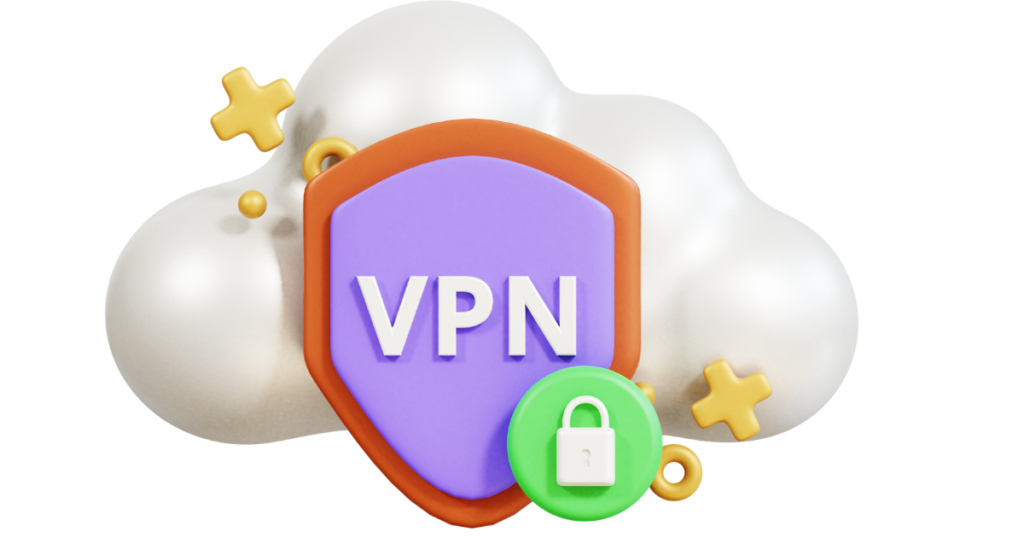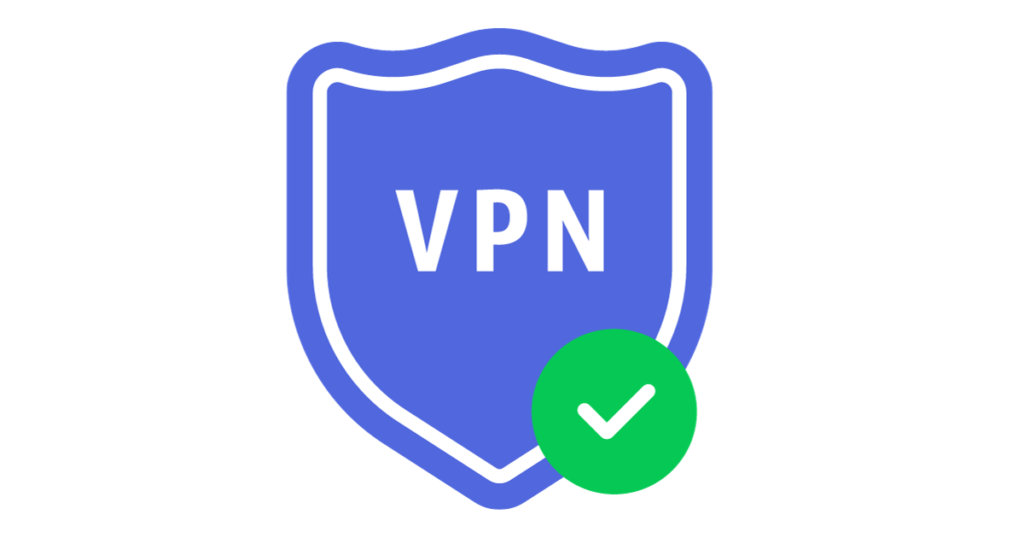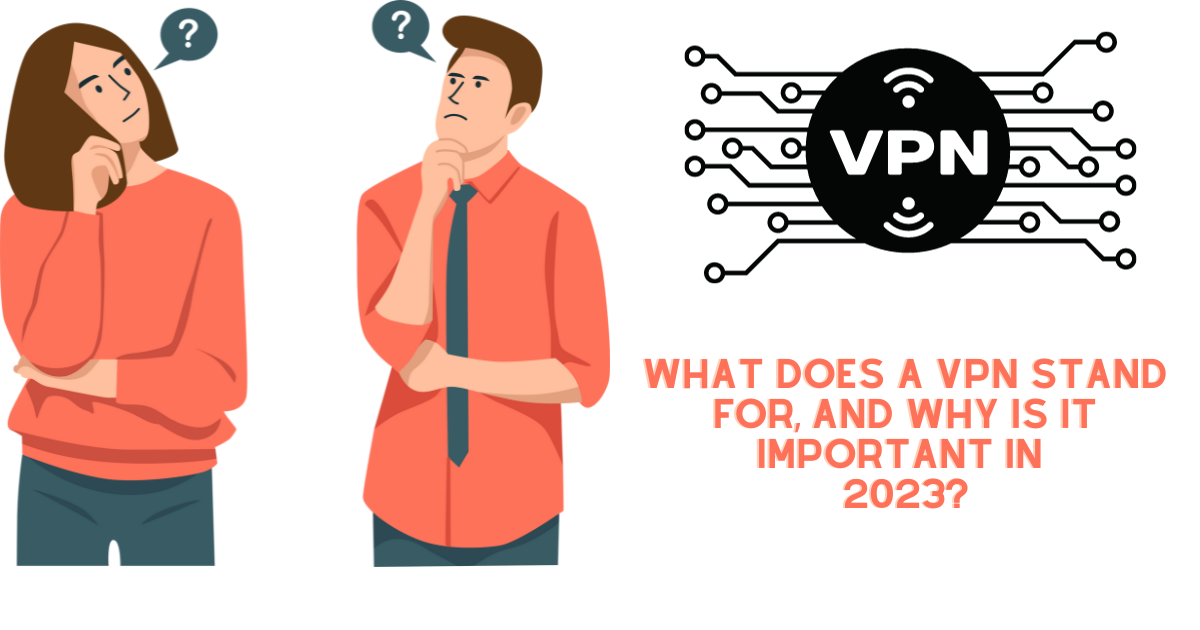In the ever-evolving landscape of the internet, ensuring your online VPN security and privacy has become more critical than ever before. One term that you’ve likely encountered in your quest for online protection is VPN service; but what does a VPN stand for? It stands for Virtual Private Network. In this article, we will delve into what a VPN is, why it is essential in 2023, and explore the aspects of VPN security and VPN service, aiming to provide you with a comprehensive understanding of this crucial tool for the modern internet user.
Introduction
The digital age has ushered in a new era of connectivity, but it also comes with its set of risks. We leave digital traces behind as we move through the virtual world, which cybercriminals, governments, or even your internet VPN service provider (ISP) might take advantage of. This is where a VPN steps in as your guardian of online privacy. Let us answer your two main questions that come to mind every now and then:
What does a VPN stands for? How it works?
What is a VPN?
At its core, a VPN’s best service is a secure tunnel between your device and the internet. It acts as an intermediary, encrypting your data and routing it through servers located in various parts of the world. This process masks your actual IP address, making it nearly impossible for anyone to trace your online activities back to you.
How Does a VPN Work?
When you connect to a VPN, your data is encrypted before it leaves your device. It then travels through the VPN’s best service server, where it is decrypted and sent to its intended destination. This means that even if someone intercepts your data, they won’t be able to decipher it, adding an extra layer of VPN security to your online presence.

Why is VPN Security Vital in 2023?
Protecting Your Data from Cyberthreats
In 2023, cyberthreats will have become more sophisticated than ever. Hackers are constantly finding new ways to exploit vulnerabilities in your devices and steal sensitive information. A VPN encrypts your data, making it virtually impossible for hackers to access your personal information.
Bypassing Geo-Restrictions
Streaming platforms and websites often impose geo-restrictions, limiting access to content based on your location. With a VPN, you can change your virtual location, allowing you to access restricted content from anywhere in the world.
Shielding Your Identity
Your ISP can track your online activities and even sell your data to advertisers. By using a VPN, you ensure that your online actions remain private, shielded from prying eyes.
Benefits of Using a VPN
The advantages of using a VPN extend beyond VPN security and privacy. You can also enjoy faster internet speeds, access to restricted content, and the ability to browse the web anonymously.
VPNs in Business and Corporate Environments
VPNs are crucial for businesses to protect sensitive data and communications. They ensure secure remote access to company networks, allowing employees to work from anywhere while keeping company information safe from cyber threats.
VPNs in Healthcare
In the healthcare sector, patient confidentiality is paramount. VPNs are used to safeguard patient records, enabling healthcare professionals to access and share sensitive medical information securely.
VPNs in Education
Educational institutions rely on VPNs to offer online courses and research materials securely. They also help students and faculty access restricted content or websites.
VPNs in E-commerce
E-commerce businesses use VPNs to protect customer data during transactions and maintain a competitive edge by accessing geo-restricted pricing and content.
VPNs in Journalism
Journalists and bloggers depend on VPNs to protect their identities and access uncensored information. VPNs enable them to report on sensitive topics without fear of censorship.
VPNs for Remote Work
The rise of remote work has made VPNs indispensable. They ensure secure connections for remote employees, preventing data breaches and unauthorized access to company resources.
VPNs in Entertainment
Streaming platforms use VPNs to bypass geographical restrictions, allowing users to access content not available in their region. This expands their audience reach.
VPNs for Personal Privacy
Individuals use VPNs to protect their online privacy from data-hungry advertisers and hackers. It keeps their personal information hidden from prying eyes.
VPNs in Travel
Frequent travelers use VPNs to access their home country’s content while abroad and secure their internet connection on public Wi-Fi networks.
VPNs in Government and Defense
Government agencies and defense organizations employ VPNs to safeguard classified information and maintain secure communication channels.
VPNs in Gaming
Gamers utilize VPNs to reduce lag and protect against Distributed Denial of VPN Service attacks, ensuring a smooth and secure gaming experience.
VPNs for Secure Banking
Online banking relies on VPNs to encrypt financial transactions, preventing unauthorized access and ensuring the VPN security of sensitive financial data.
VPNs for Research and Development
Research institutions and laboratories use VPNs to protect their valuable research data from cyber threats and espionage.

Common VPN Myths Debunked
VPNs Slow Down Your Internet
While VPNs can impact your speed slightly due to encryption, modern VPNs are optimized to minimize this effect, and you’ll often experience negligible differences.
VPNs are Only for Tech-Savvy Users
This couldn’t be farther from the truth. Most VPNs today are designed with user-friendliness in mind, making them accessible to anyone, regardless of technical expertise.
VPNs are Illegal
VPNs are entirely legal in most countries. However, it’s essential to use them for legal and ethical purposes.
Conclusion on “What Does a VPN Stand for”
As we navigate the complex digital landscape of 2023, a VPN stands as an indispensable tool for safeguarding your online VPN security and privacy. It’s not just about staying safe from cyber threats; it’s also about regaining control over your digital identity.
But how to decide which VPN service can help me out in everything. Read Full review on Norvpn, Surfshark VPN, and ExpressVPN.
Frequently Asked Questions (FAQs)
What Does a VPN Stand for?
A VPN stands for Virtual Private Network.
Is using a VPN legal?
Yes, VPNs are legal in most countries. However, it’s essential to use them responsibly and within the boundaries of the law.
Do VPNs slow down your internet speed?
VPNs can slightly affect your internet speed due to encryption, but the impact is usually minimal, especially with top-tier VPN services.
Can I use a VPN on my mobile device?
Yes, most VPN providers offer mobile apps, making it easy to protect your privacy on smartphones and tablets. Try NordVPN, the best choice for mobile phones.
Are all VPNs equally secure?
No, the level of security can vary between VPN providers. It’s crucial to choose a reputable VPN service with strong encryption and a strict no-logs policy.
How do I know if my VPN is working?
You can check if your VPN is working by visiting websites that display your IP address. If the displayed IP address is different from your actual location, your VPN is active and working.
Check more top VPNs like Atlas , Expressvpn.
